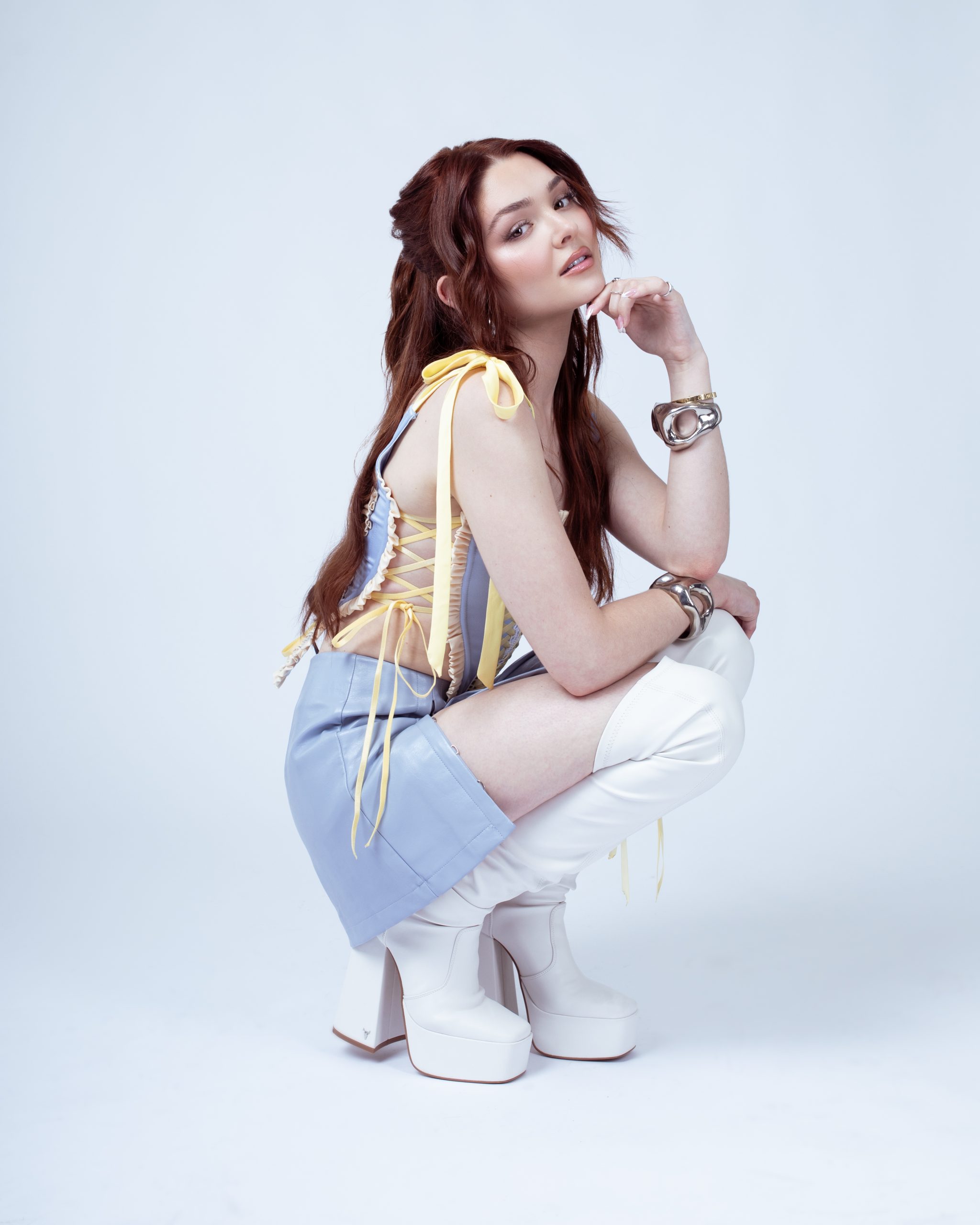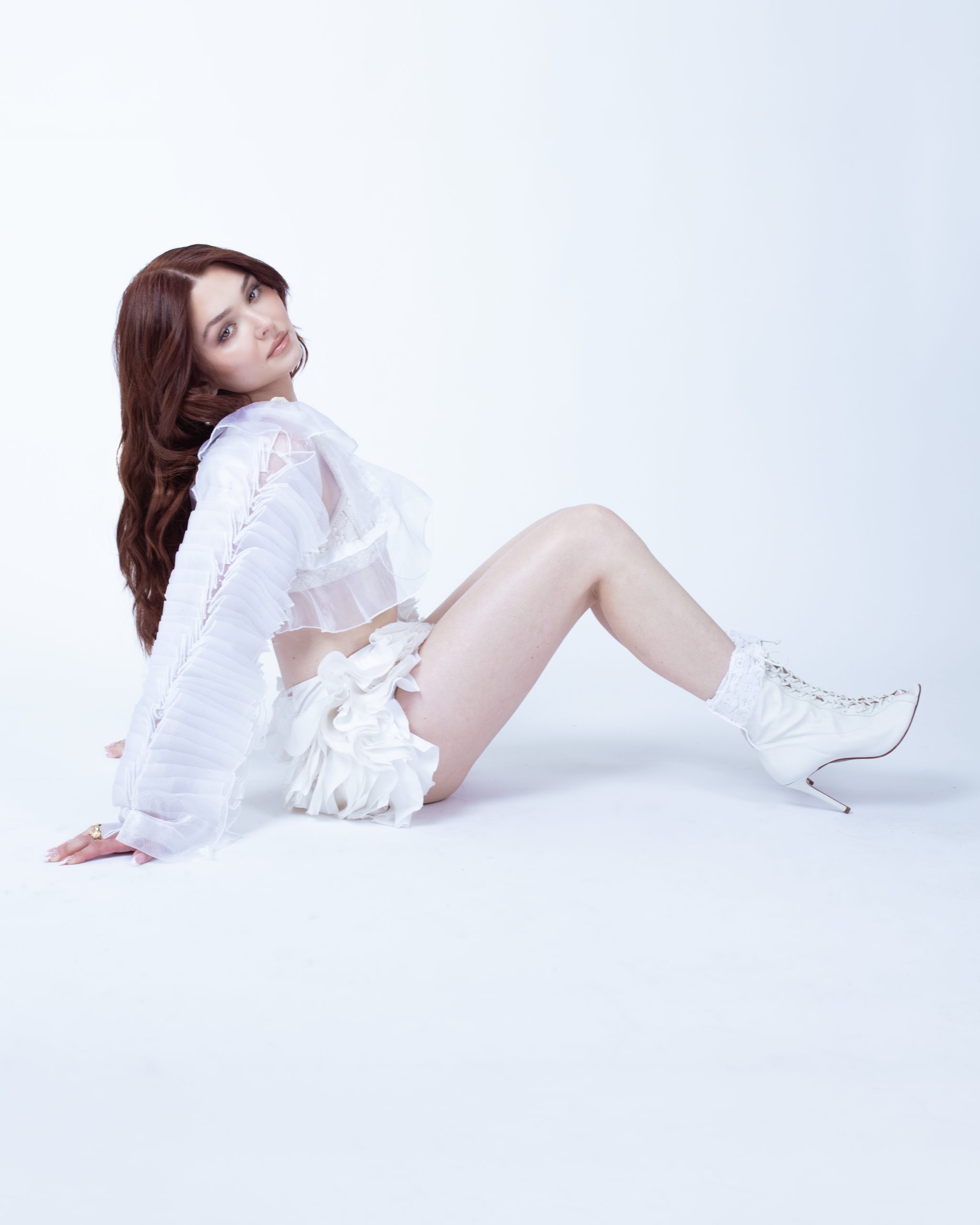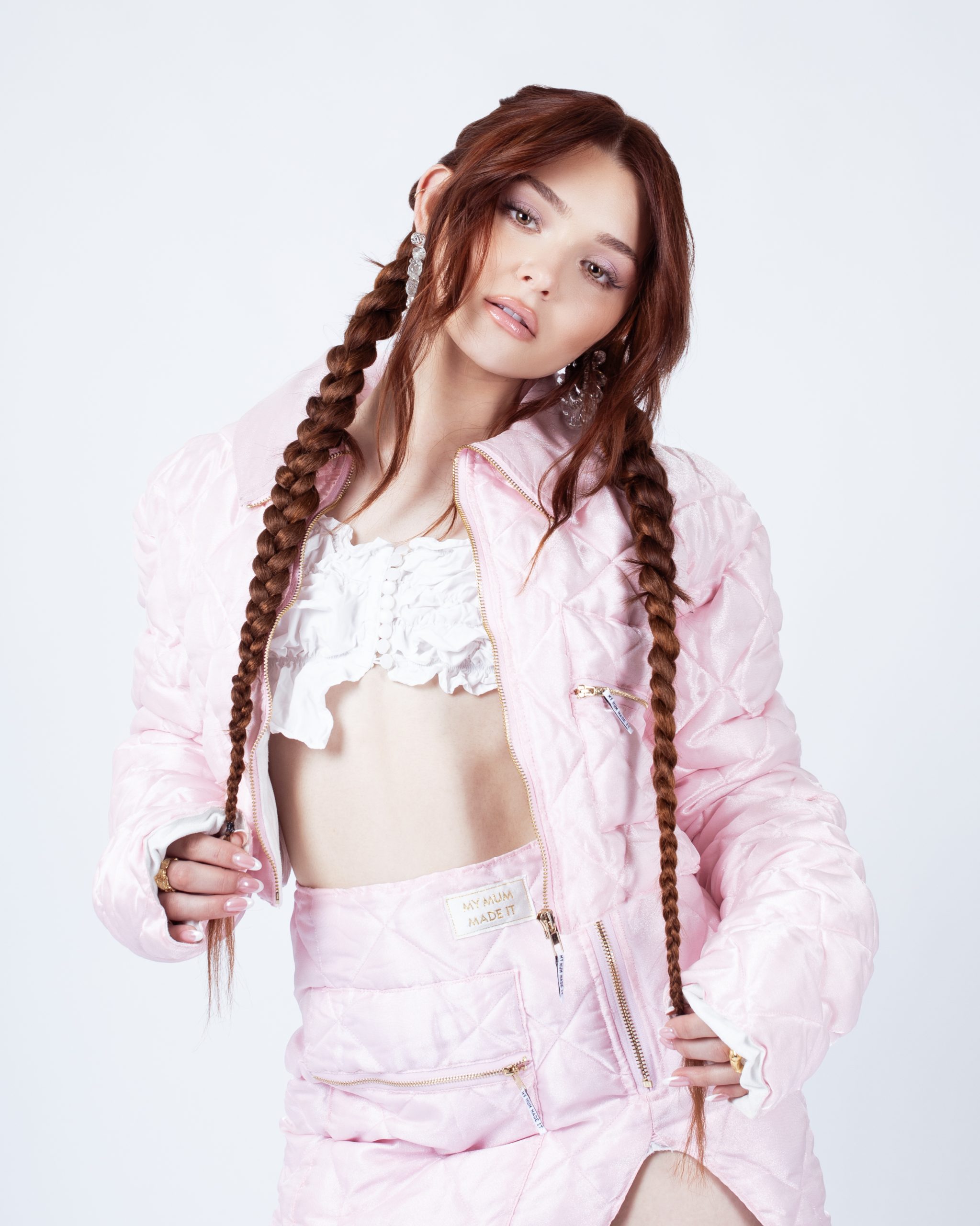At just twenty-three, New York-based Gabi Sklar is already proving to be one of the most excting new names in pop – which she makes even more apparent with “Lonely Times”, her last bop of 2023.
Coming through as the lead single from Gabi’s forthcoming EP set to drop in 2024, “Lonely Times” is an artistic juxtaposition of bouncy, cheery doo-wop production and lyrical themes exploring the fine line between being alone and being lonely.
Written by Gabi, with hitmakers Anton Göransson and Isabella Sjöstrand adding their golden touch, “Lonely Times” joins a string of well-received numbers dropped off by Gabi this year, including her sassy viral hit “Pardon My French” and the playful “Monster Truck.” Meanwhile, the acoustic offering “Thank God” is a shining moment in Gabi’s growing catalog, showing off the richness of her unique vocal tones (actively trained by Gabi with legendary vocal coach Don Lawrence) and her talents as a storyteller.
Emerging as a breath of fresh air with her vibrant take on classic pop backed up by a mighty team of industry legends – such as Ariana Grande’s go-to hitmaker Tommy Brown as well as the iconic choreographer Laurieann Gibson – Gabi’s star-studded co-signs is a testament to her undeniable star quality.
With Gabi’s forthcoming EP set to continue elevating her to the upper echelons of the pop sphere, we caught up with the rising star to celebrate her new single “Lonely Times”, her breakout success, as well as her views on the ever-changing nature of the music industry.
SheBOPS: Congratulations on your new single, ‘Lonely Times.’ Can you tell us about the inspiration behind the song and what it means to you personally?
Gabi Sklar: There’s a fine balance between time spent alone before it feels lonely. Sometimes, I find myself not knowing where that divider is until one trickles into the other. The night before we wrote the single, I was having a conversation with my friends and collaborators, Anton and Isabella, and one of them said the line, “these are lonely times…” It just really hit close to home, and the next day we wrote “Lonely Times” together.
The song hears you questioning the difference between time spent alone versus time spent lonely. Can you elaborate on that and how it influenced the lyrics and theme of the song?
I really enjoy my own company which is great, but becomes harmful when I exclude myself from plans and miss opportunities before they can even happen. While it’s progressed over time, I’m definitely working on it.
Your pop production and doo-wop harmonies in ‘Lonely Times’ are quite captivating. What inspired this sonic direction and how did you and producer Anton Goransson collaborate to create this unique sound?
For a good year now, I’ve found myself really infatuated with the music from the ‘50s and ‘60s. I love the juxtaposition between hopeless romanticism and tragic yet comedic lyrics, mixed with beautiful, dream-like melodies. I love something that’s timeless while feeling both lovely and melancholy.
When did you first realize that you wanted to pursue a career in music, and what were the initial steps you took to start your journey?
I always loved writing whether it be poetry, stories, music, you name it. I started playing piano at seven and I was in a recording studio on my first co-writing trip in LA at the age of thirteen, which is when I saw music as something greater than a kid writing love songs in the four walls of her childhood home.
If you had to describe your music and your artistic identity in a few words, what would they be?
A nostalgic melancholy dream.
Can you tell us about the message or emotions you aim to convey through your music, and how you want your listeners to feel when they hear your songs?
I go back to my favorite artists and the first core memories of hearing their music. I want my songs to be a world where people can escape to for 3 minutes and 15 seconds. It’s more than just creating and relaying a story: it’s providing an experience, shared and perceived mutually but in different ways.
Your vocal range in particular has garnered significant attention. Could you share your journey of developing and honing your vocal skills?
Some people are born with beautiful, massive voices; however, I was not one of those people. I will always say I was not born a singer, but I loved to sing regardless. I worked really hard to find a voice that felt authentic to me and took years of lessons with Don Lawrence, an incredible coach and mentor. Just as importantly, I found purpose in “why” I sing. The more you live, the more you experience; the more soul, the more purpose.
You’ve worked with some prominent figures in the music industry, such as Grammy Award-winning producer Tommy Brown and legendary songwriters like Diane Warren. How have these collaborations shaped your musical journey and influenced your style?
With every experience and collaboration I’ve learned so much. The best feeling is walking out of a room not just with a great song, but with gained knowledge or perspectives different from when you initially walked into that room. That’s one of the best parts of working with such incredible and experienced talent. Take their insight, work endlessly on your craft and eventually, the narrative pieces itself together.
You’ve received training from vocal coach Don Lawrence, choreographer Laurie Ann Gibson, and performance coach KJ Rose. How have these mentors helped you develop as an artist, and what valuable lessons have you learned from them?
With singing, dancing, performing, emoting, it’s all a mental sport. Once you stop judging yourself and setting limits for yourself, you soar at what you once perceived as impossible. It takes a lot of time, energy and diligence, but some of your best moments come from your worst mistakes. I’m really grateful for the safe space they’ve each created and for seeing my potential before I did.
The music industry is ever-evolving, especially in the digital age. How do you navigate the challenges and opportunities presented by platforms like TikTok and Instagram to connect with your audience?
Success is not determined by likes, numbers, algorithms or views, but community and what you do with it. That’s something I’ve definitely learned. All the digital stuff constantly changes but the constant is your authenticity to your art, identity, why you started and who (no matter how small or large) was there in the beginning. Sometimes we have our imperfect moments, but it’s so important to be consistently engaging with the community that also saw the human in you, and are also able to embrace it within themselves. I’m really grateful to social media for that connection but even more grateful for the real people that connected.
Do you have any specific role models or artists who have inspired your musical career?
There’s no one like Dolly Parton. I look at her of course for her talent and penmanship, but more importantly, for her humor, humanitarianism, how she’s embraced her flaws and the community where she started. I can go on really, but I would love to leave even the slightest impact that she’s left and with such grace.
Women have historically been underrepresented in the music industry. How do you think the landscape is changing for women in music today?
Times are different and we’re seeing women become more powerful than ever. There is still so much work to be done but it’s these iconic, beautiful-mind-and-hearted, badass females that are leaving their legacy now in order to create space for more women in the future.
Do you think the music industry is evolving in a more inclusive and supportive direction for women, and if so, what factors are contributing to this shift?
Rebellion, for one. You can see it in the art being created and winning awards; you see it in the charts; you see more females in powerful positions at labels and on the industry side; we are living history in real-time and it’s riveting. The idea of a man’s world is only ammunition to create change so it’s everyone’s world with equal opportunity. The vein of existence stems from womanhood and motherhood so there’s nothing more powerful than a woman defying “the rules.” The same rules that were set by the same men that came from… women.
As a rising artist, what are your long-term goals in the music industry?
I would love to tour and release albums with more depth, both sonically and visually. I’d love to have more of my music in film and maybe star in or direct a few pictures. Apart from the music, I’d love to expand my involvement with community and philanthropy. I’m just a small girl with very big dreams, a limited budget, and a long way to go.
Lastly, what can we expect from you in the near future?
2024 will be filled with more live shows and, hopefully, an EP by the end of the year! A lot can happen in a year so expect the unexpected…






